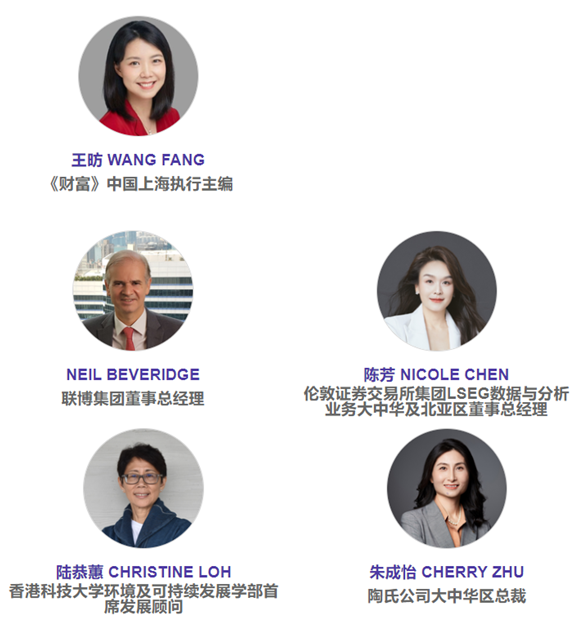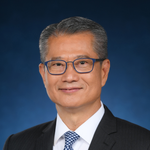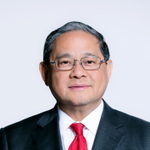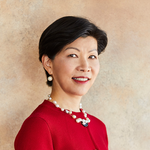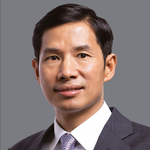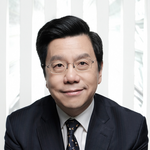- FORTUNE MOST POWERFUL WOMEN BREAKFAST (By invitation only)
尚艾俪 Alyson Shontell•谢菁炜 YVONNE XIE•齐悦蔓 CLAIRE ZILLMAN● Innovating for the Future: Leading Through Global Transformation
A gathering of top female executives and members of Fortune’s Most Powerful Women community will feature special interviews and a town-hall style discussion about leadership in a time of monumental change.
● THE BIG GET-TO-KNOW-YOU
MPW's trademark icebreaker invites all participants to introduce themselves. - MPW PANEL DISCUSSION: CLOSING THE GENDER GAP (By invitation only)
陈翊庭 Bonnie Y Chan•Kathryn McLay•孙洁 Jane Sun•屈翠容 JOEY WAT•齐悦蔓 CLAIRE ZILLMANThe share of female CEOs in the Fortune Global 500 jumped 20% last year, but their numbers are still tiny: 29 CEOs or less than 6% of all chief executives. Still, that total represents a record, proof of progress but still far short of equal representation. A conversation with top female executives will identify the factors keeping women from the C-Suite and share best practices for building a deep bench of female talent.

陈翊庭 Bonnie Y Chan
Chief Executive Officer at Hong Kong Exchanges and Clearing Limited
Kathryn McLay
President and CEO of Walmart International
孙洁 Jane Sun
Chief Executive Officer at Trip.com Group Limited
屈翠容 JOEY WAT
Chief Executive Officer at Yum China
齐悦蔓 CLAIRE ZILLMAN
SENIOR EDITOR at FORTUNE; Co-chair, Innovation Forum
- MPW TOWN HALL DISCUSSION: HOW LEADERS ARE NAVIGATING A WORLD IN FLUX (By invitation only)
Jo Ling KentVarious disruptive forces—the green transition, the AI revolution, and geopolitical crises—are converging to fuel unprecedented uncertainty and present unparalleled opportunity in today’s business world. In a town-hall style discussion, top leaders from different industries will share their best practices for navigating this era of change; how they’re stoking innovation, addressing gender inequality in leadership roles, and adapting their management style to meet the moment.
- WELCOME REMARKS
钱科雷 Clay Chandler - THE INNOVATION IMPERATIVE
陈茂波先生, 大紫荆勋贤, GBS, MH, JP The Honourable Paul CHAN Mo-po, GBM, GBS, MH, JP•尚艾俪 Alyson ShontellHong Kong has consistently confounded skeptics warning of its imminent demise. Now, in the aftermath of the pandemic, the city faces new challenges: a battered stock market, tepid demand for property, subdued growth on China’s mainland. Finance Secretary Paul Chan explains how Hong Kong is reinventing itself yet again—embracing technology and innovation to preserve and enhance its status as one of the world’s most dynamic commercial hubs.
- What Customers Want: Understanding the Global Consumer
Diane Brady•Kathryn McLay - COPING WITH CHAOS: BUSINESS STRATEGIES FOR AN AGE OF UPHEAVAL
钱科雷 Clay Chandler•冯国经 Victor Fung•Dipali Goenka•倪以理 Joe Ngai•屈翠容 JOEY WATThe convergence of technological advancements, climate threats, geopolitical volatility, and market unpredictability is upending everything we thought we knew about global trade. Business leaders share how they’re leveraging technology and rethinking supply chains as our understanding of ‘globalization’ continues to evolve.
- UNLOCKING ASIA'S AI POTENTIAL
石博盟 Scott Beaumont•Curtis Kim•Jo Ling Kent•温书豪 Wen Shuhao•朱晋郦 Jennifer Zhu ScottAsia is full of AI potential: the region is home to over half the world’s internet users, and investments in the technology in Asia-Pacific are expected to reach $78.4 billion by 2027. The challenge for business leaders now is to capitalize on that interest and demand—and turn it into opportunity and growth for their companies. Top executives reveal how they’re integrating AI into their businesses and ensuring all the AI buzz generates real results—not just hype.
- HONG KONG’S NEXT ACT
钱科雷 Clay Chandler•陈翊庭 Bonnie Y ChanThe newly appointed CEO of Hong Kong Exchange and Clearing, the exchange’s first-ever female chief, shares her vision for preserving—and expanding—Hong Kong’s role as a global financial hub and capital market super-connector.
- LUNCH SESSIONS
欧阳杞浚 Evan Auyang•Neil Beveridge•陈芳 Nicole Chen•储瑞松 Rob Chu•Leo Grepin•何征宇 Zhengyu He•梁瀚璟 King Leung•刘月婷 Lucy Liu•陆恭蕙 Christine Loh•阮芳 Fang Ruan•骆杰峰 Jeff John Roberts•柴田诚 Makoto Shibata•王昉 Wang Fang•谢菁炜 YVONNE XIE•Edith Yeung•朱成怡 Cherry Zhu● THE FUTURE OF FINANCE: ARE WE MOVING BEYOND BANKS?
The world of finance is in tumult. Advances in digital technologies have transformed the way people in rich and developing countries alike pay for even the most basic purchases. Are currency and coins on their way out—taking with them the rationale for banks as physical structures? And if so, what comes next? Will the future of finance be dominated by decentralized cryptocurrencies? Central bank digital currencies? Or something else? Will financial innovation bring financial stability—or its opposite?
● SPOTLIGHT ON INNOVATION: REDEFINING BUSINESS IN A DIGITAL AGE
The business world is in the midst of an era of transformation. Global markets are undergoing a radical overhaul, science and cutting-edge technologies are tackling monumental challenges, and companies face a stark choice: innovate or fall behind. How are business leaders embracing game-changing innovations, from AI to Web 3.0, to maintain a competitive edge?
● ACCELERATING THE GLOBAL ENERGY TRANSITION
The head of the International Energy Agency has argued that military conflicts in Gaza and Ukraine will accelerate the global shift away from planet-warming fuels and toward renewable energy. But other experts warn that the pace of that transition has slowed amid geopolitical uncertainties, energy supply shocks, and rising interest rates. What must be done to speed the global energy transition and meet the worldwide goal of keeping warming below 1.5 degrees Celsius? What are the technologies that will make that transition possible? And how will the world find the capital necessary to implement that tech at scale?
欧阳杞浚 Evan Auyang
Group President at Animoca Brands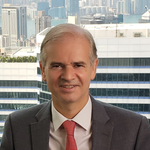
Neil Beveridge
Managing Director of AB Bernstein
陈芳 Nicole Chen
Managing Director, Data & Analytics, Greater China & North Asia of London Stock Exchange Group (LSEG)
储瑞松 Rob Chu
Corporate Vice President, Amazon; President, AWS Greater China at Amazon
Leo Grepin
Regional Chief Executive and Group Chief Strategy Officer at AIA
何征宇 Zhengyu He
Chief Technology Officer at Ant Group
梁瀚璟 King Leung
Head of Financial Services and Fintech at InvestHK
刘月婷 Lucy Liu
Co-founder and President of Airwallex
陆恭蕙 Christine Loh
Chief Development Strategist at The Hong Kong University of Science and Technology
阮芳 Fang Ruan
BCG Managing Director & Senior Partner
骆杰峰 Jeff John Roberts
Finance & Crypto Editor at Fortune
柴田诚 Makoto Shibata
Head & Chief Community Officer at FINOLAB; Audit & Supervisory Board Member at UI Bank
王昉 Wang Fang
EXECUTIVE EDITOR, SHANGHAI at FORTUNE CHINA
谢菁炜 YVONNE XIE
NEW MEDIA EXECUTIVE EDITOR at FORTUNE CHINA
Edith Yeung
General Partner at Race Capital
朱成怡 Cherry Zhu
President at Dow Greater China
- NAVIGATING ASIA’S CHOPPY MARKETS
钱科雷 Clay Chandler•诸立力 Victor Chu•洪灝 Hao HONG•李宏玮 Jenny LeeOne size has never fit all for investors in Asia, but that is especially true now. Asia’s best-performing major index (Japan) gained nearly 30% last year, while its worst-performing (Hong Kong) lost 14%. The region is a puzzle for investors hunting for growth, but there are opportunities to be had for those who grasp how factors like geopolitical shifts, the promise of AI, and China’s challenged economy are altering the landscape.
- WHAT’S NEXT? VENTURE CAPITALISTS PREDICT MEGATRENDS OF TOMORROW
Vishal Harnal•Weisheng Neo•Kathy Matsui•骆杰峰 Jeff John Roberts•周炜 Wei ZhouVenture capitalists have become more selective with their dollars, but that hasn’t moderated their hunt for the next game-changing company. Panelists share how they’re evaluating opportunities in a more conservative investment environment and identify the industries and technologies that are ripe for the biggest payoffs.
- ON THE ROAD AGAIN, REIMAGINING TOURISM AND TRAVEL
Diane Brady•程鼎一 Dane Cheng•罗宝文 Poman Lo•太田宗克 Munekatsu Ota•孙洁 Jane SunWith borders reopening, the world is on the move again. But in the pandemic’s aftermath, what about tourism and travel feels permanently changed? Different regions seem to be bouncing back at different speeds and in different ways. What are the major variations? And what have industry leaders—in the hotel, airline, and online booking sectors, as well as government officials—learned from their COVID ordeal?
- BAYWATCH: CHINA’S GREATER BAY AREA AS INNOVATION CATALYST
景广军 Guangjun Jing•刘立斌 Liu Libin•彭富强 Wilson Pang•沈明高 Minggao Shen•王昉 Wang FangThe Chinese government’s bold plan to link the special administrative regions of Hong Kong and Macau to nine other cities in Guangdong’s Pearl River Delta would create a single integrated economic hub with more than 70 million people and a GDP almost as large as South Korea’s. China’s blueprint for a “Greater Bay Area” is often compared to America’s “Silicon Valley,” but it has the potential to outshine rival international “bays”—not just San Francisco but also New York or Tokyo—by using world-class infrastructure to connect a diverse combination of innovative companies across sectors. But the challenges to meaningful integration are daunting. Can the grand vision for connecting the region be achieved?

景广军 Guangjun Jing
Chairman at Guangzhou Industrial Investment Holdings
刘立斌 Liu Libin
Vice General Manager at Guangdong Guangxin Holdings Group Co., Ltd.
彭富强 Wilson Pang
Head of KPMG China GBA Strategy & Development Office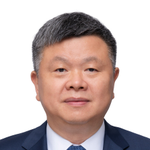
沈明高 Minggao Shen
Global Chief Economist and Head of Global Institute for Supply Chains at GF Securities
王昉 Wang Fang
EXECUTIVE EDITOR, SHANGHAI at FORTUNE CHINA
- NETWORKING AND COFFEE BREAK
- IS JAPAN ‘BACK’?
钱科雷 Clay Chandler•Jesper Koll•清水季子 Tokiko ShimizuThe world’s third-largest economy is emerging from three decades of stagnation and deflation. Investors are cheering; the benchmarked Nikkei stock index is nearing its pre-bubble high. But Japan faces daunting challenges, including a shrinking and aging workforce and massive government debt, to keep its recovery on track.
- CHARGING AHEAD: WHO’S WINNING THE GLOBAL EV RACE?
高名历 Nicholas Gordon•巩旻 Paul GongElectric vehicle adoption is key to helping the world reduce carbon emissions, but consumers remain hesitant, scared off by cost and range anxiety. Some companies—and countries—have overcome these barriers and are pulling ahead in the global EV race. What has distinguished the winners from losers so far, and how can the industry as a whole win over the remaining skeptics?
- CHINA’S ECONOMY: WHAT TO EXPECT IN THE YEAR OF THE DRAGON
Ben Harburg•Alicia García Herrero•胡祖六 Fred Hu•李小加 Charles Li•王昉 Wang FangThe lunar new year got off to an auspicious start for China as consumer spending and travel during the holiday period surged to pre-pandemic levels. But the world’s second-largest economy faces many headwinds: mounting public debt, a troubled property sector, a shrinking labor force, and daunting levels of youth unemployment. Aggravating those challenges: continued trade tensions with the West—which could intensify depending on the outcome of the US presidential election. There are a few bright spots, including a booming electric vehicle sector, and surprising resilience to Western in key areas like chip manufacturing. What’s in store for 2024? A panel of distinguished global analysts share their predictions.
- GLOBAL EXPANSION STRATEGIES
李东生 Tomson Li•章劢闻 Derek ZhangHuizhou-based TCL Electronics last year reclaimed its ranking as the world’s second-largest television manufacturer. But the company, one of the first large Chinese firms to successfully execute an overseas acquisition, faces fierce global competition for sales of televisions and a host of other electronic products. Founder and group chairman Li Dongsheng outlines TCL’s strategy for the next stage of its global expansion.
- SHAPING THE NEXT ERA OF HEALTHCARE
谢菁炜 YVONNE XIE•尹烨 Yin Ye•Alex ZhavoronkovIn recent years, we’ve seen a sliver of what can be achieved when we embrace collaboration in biotechnology. Invisible cochlear implants, genome-edited crops, and vaccines for once-incurable diseases are all examples of the leaps and bounds that have been made in biotech. What more could be possible when the world comes together to develop mutually beneficial technology?
- THE GREEN TECH PARADOX
Jean-Pascal Tricoire•齐悦蔓 CLAIRE ZILLMANThe green transition is more urgent than ever, yet green innovation, as measured by patent filings, has declined since 2010, according to the IMF. What factors are stymying advancement and how can today’s leaders help unlock technology’s promise to aid in the essential mission of decarbonization?
- COCKTAIL /RECEPTION • Fortune Asia Future 30 Award Ceremony
In recognition of Asia's Innovative Companies Set For Long-Term Growth
- DINNER & PROGRAM
李开复 Kai-Fu Lee•尚艾俪 Alyson ShontellSPRINTING TOWARDS BABYLON?
One of Asia’s best-known AI experts, in a fireside conversation with FORTUNE, discusses the significance of recent breakthroughs—on both sides of the Pacific—in large language model technology and talks about how he is driving innovation at his own recently launched AI venture.
- NEW PERSPECTIVES ON TRADE, TECHNOLOGY, JOBS, AND GROWTH
钱科雷 Clay Chandler•Lawrence H. SummersThe global economy continues to surprise: a stunningly resilient U.S., inflation that’s falling faster than expected, and a long hoped-for soft landing that now seems achievable. A renowned economist and former finance official with a unique perspective on technology shares his views on the challenges facing the world economy.
Additional speaker to be announced - SMART HEART: HOW AI WILL SUPERCHARGE MEDICAL DEVICES
Jo Ling Kent•Geoff MarthaMedtronics, one of the world’s largest medical device makers, has enormous economies of scale. The chairman and CEO, shares how the $100 billion company is embracing AI, embedding the technology into many of its devices, from insulin pumps to heart monitors, and using AI as a tool to train surgeons.
- CRYPTOCURRENCIES AT A CROSSROAD
Emily Chiu•Alicia Kao•骆杰峰 Jeff John Roberts•Edith YeungCryptocurrencies have been dogged by scandal—and yet recently earned a stamp of legitimacy when the U.S. approved Bitcoin ETFs. Other financial hubs, including Hong Kong are seeking regulatory regimes that would allow for innovation but still protect consumers. Crypto experts discuss what’s next for cryptocurrencies and how they’ll shape the future of how we buy, borrow, and invest.
- INNOVATION IN AVIATION
林绍波 Ronald Lam•尚艾俪 Alyson Shontell - NETWORKING AND COFFEE BREAK
- SUSTAINABLE SUPPLY CHAINS
Rajiv Sharma•杨敏德 Marjorie Yang•齐悦蔓 CLAIRE ZILLMANThe textile industry is a big emitter; it consumes large quantities of water and energy, and textile waste is enormous—92 million tonnes annually. Industry leaders explain how they’re innovating to shrink the sector’s environmental footprint and rethinking globe-spanning supply chains.
- THE SKILLS CHALLENGE: TRAINING THE WORKFORCE OF TOMORROW
Diane Brady•Alexis Crowell•SHARON CHU•Alan May•张羽 Stephen ZhangMost business leaders expect generative AI to unleash dramatic gains in productivity and corporate profits. Yet, according to one recent estimate, just 6% of companies have trained at least a quarter of their workforces on gen AI. How can employers tackle the dual challenge of closing such gaps in technological readiness while easing workers’ anxiety about AI replacing jobs?

Diane Brady
Editorial Director, CEO Initiative of FORTUNE
Alexis Crowell
CTO and Vice President Asia Pacific and Japan at Intel
SHARON CHU
Managing Director, Hong Kong Talent and Organisation Practice Lead of Accenture
Alan May
Chief Integration Officer for Talent and Culture at Hewlett Packard Enterprise
张羽 Stephen Zhang
Partner at Heidrick & Struggles
- CHINA’S GEN Z CONSUMERS
董炜 Angela Dong•Pontus Erntell•高名历 Nicholas Gordon•沈建光 Jianguang Shen•王幸 Doreen WangChina’s young consumers are more discerning than ever. Pragmatism—not impulse—is driving their purchasing decisions in a challenged economic environment; they favor quality, sustainability, and the chance for social interactions in their retail experiences. How can brands keep up? Leaders at the forefront of this revolution share how they’re leveraging technology and data to meet the evolving demands of today’s consumers.

董炜 Angela Dong
Global Vice President and General Manager at Nike, Greater China
Pontus Erntell
President and Chief Sustainability Officer at IKEA China
高名历 Nicholas Gordon
EDITOR, ASIA at FORTUNE; Co-chair, Innovation Forum
沈建光 Jianguang Shen
Chief Economist at JD.com
王幸 Doreen Wang
Kantar Greater China CEO & Global Chair of Kantar BrandZ
- Closing Remarks
钱科雷 Clay Chandler
The lunch sessions on March 27th [12:30 noon-1:40pm] will have three simultaneous sub-venues. The specific arrangements are as follows:
THE FUTURE OF FINANCE: ARE WE MOVING BEYOND BANKS?
The world of finance is in tumult. Advances in digital technologies have transformed the way people in rich and developing countries alike pay for even the most basic purchases. Are currency and coins on their way out—taking with them the rationale for banks as physical structures? And if so, what comes next? Will the future of finance be dominated by decentralized cryptocurrencies? Central bank digital currencies? Or something else? Will financial innovation bring financial stability—or its opposite?
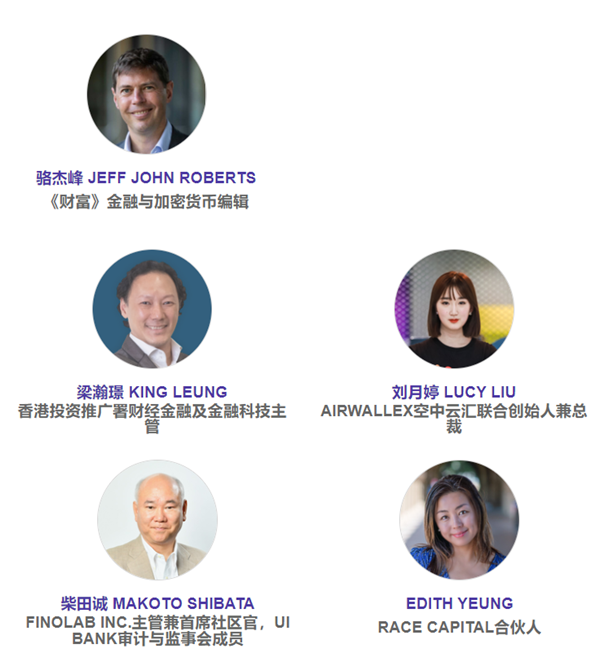
SPOTLIGHT ON INNOVATION: REDEFINING BUSINESS IN A DIGITAL AGE
The business world is in the midst of an era of transformation. Global markets are undergoing a radical overhaul, science and cutting-edge technologies are tackling monumental challenges, and companies face a stark choice: innovate or fall behind. How are business leaders embracing game-changing innovations, from AI to Web 3.0, to maintain a competitive edge?
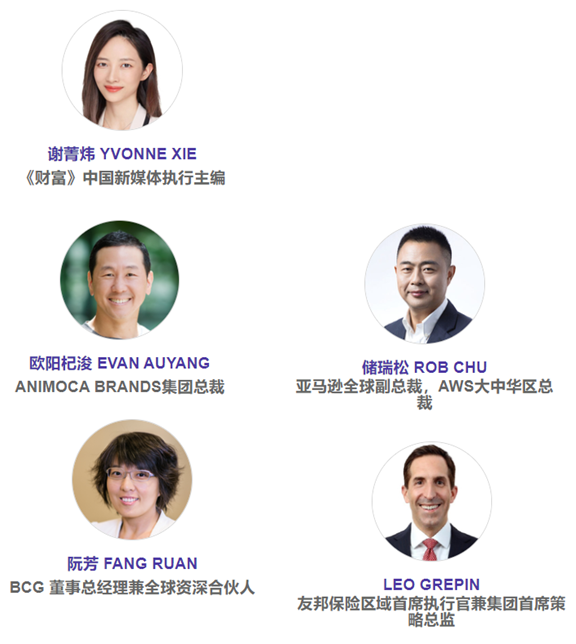
ACCELERATING THE GLOBAL ENERGY TRANSITION
The head of the International Energy Agency has argued that military conflicts in Gaza and Ukraine will accelerate the global shift away from planet-warming fuels and toward renewable energy. But other experts warn that the pace of that transition has slowed amid geopolitical uncertainties, energy supply shocks, and rising interest rates. What must be done to speed the global energy transition and meet the worldwide goal of keeping warming below 1.5 degrees Celsius? What are the technologies that will make that transition possible? And how will the world find the capital necessary to implement that tech at scale?
